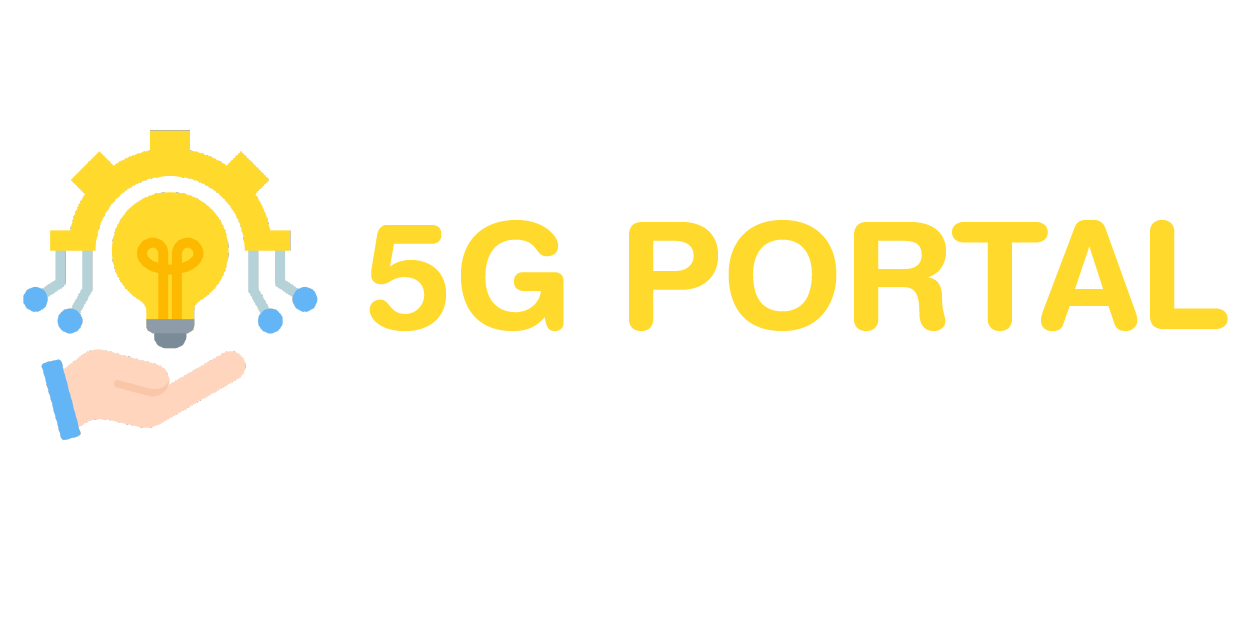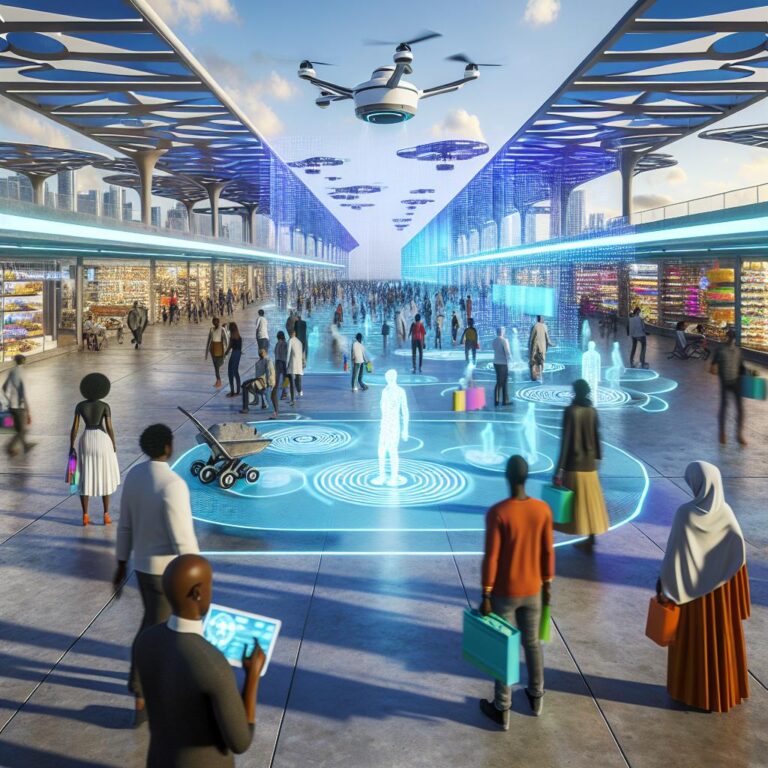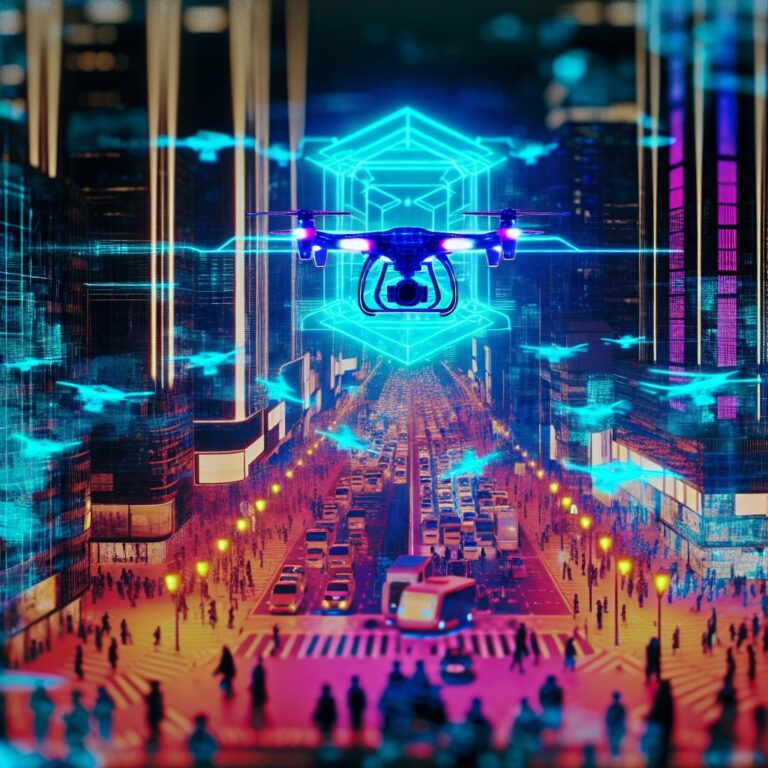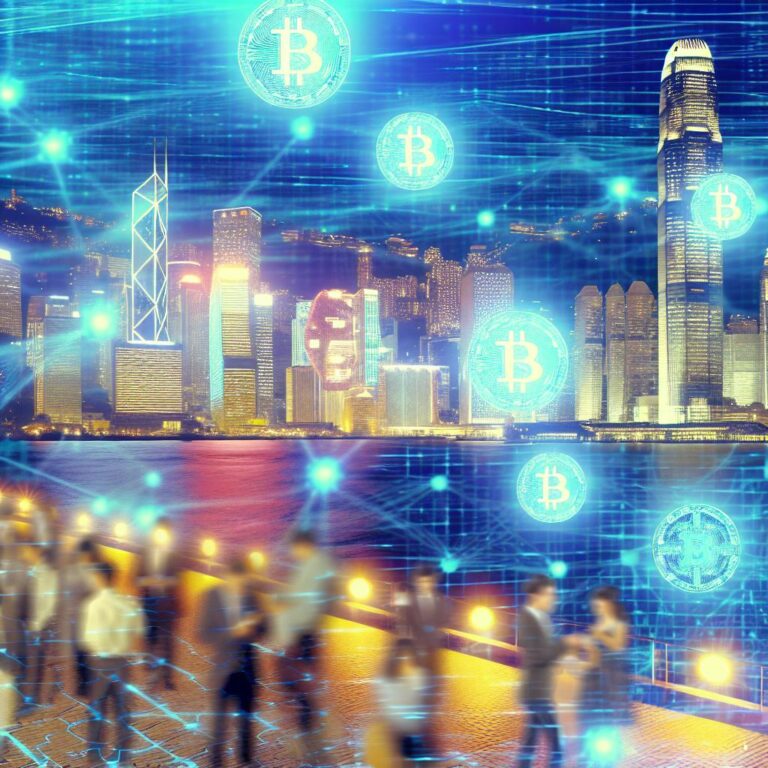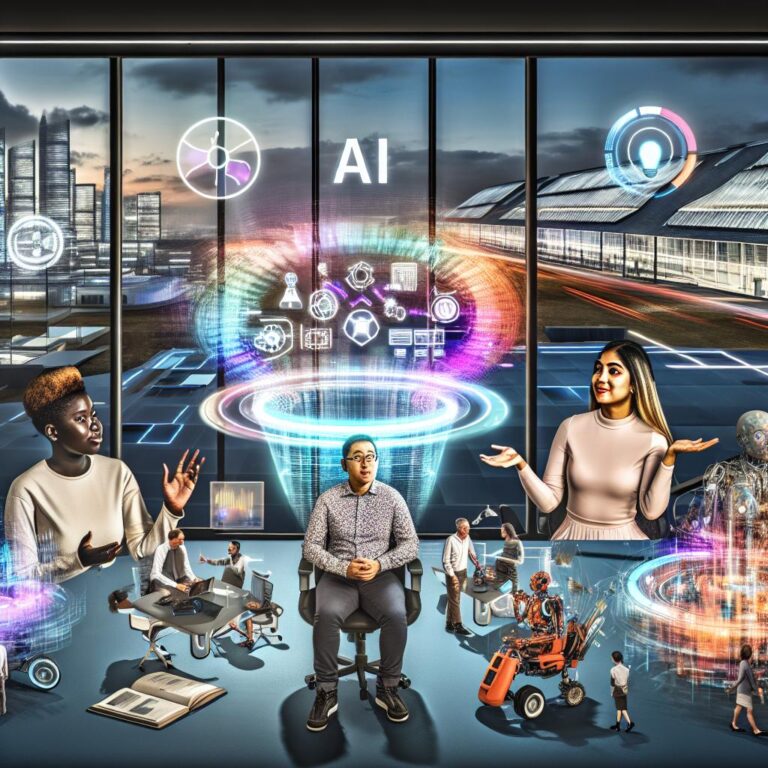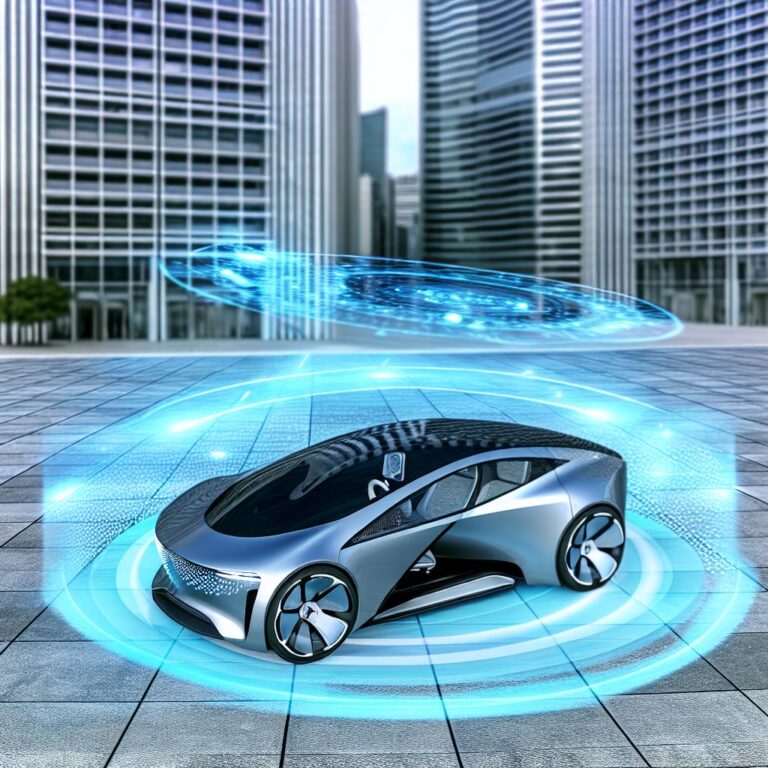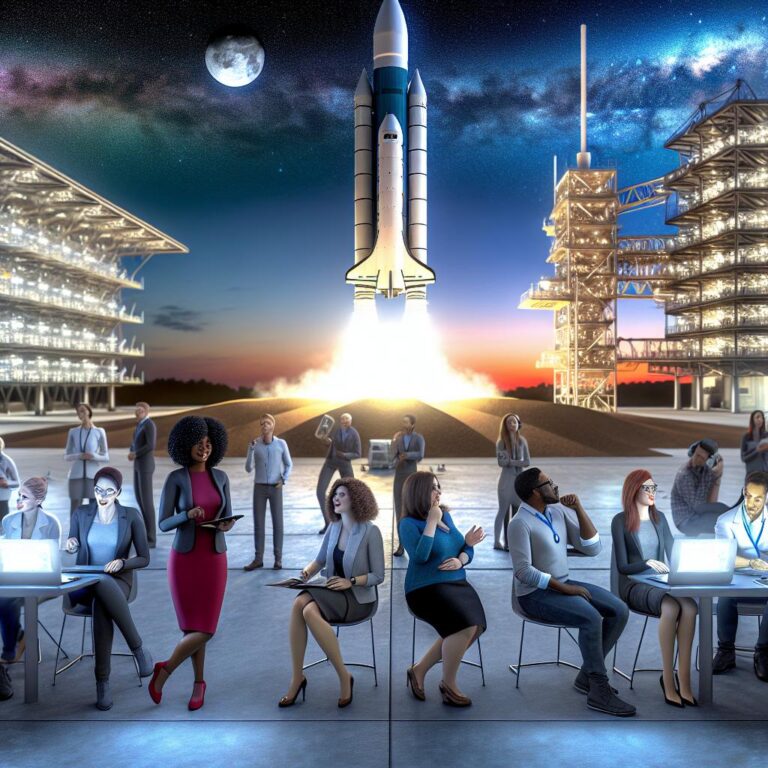What Can AI in 10 Years Do for Everyday Life?
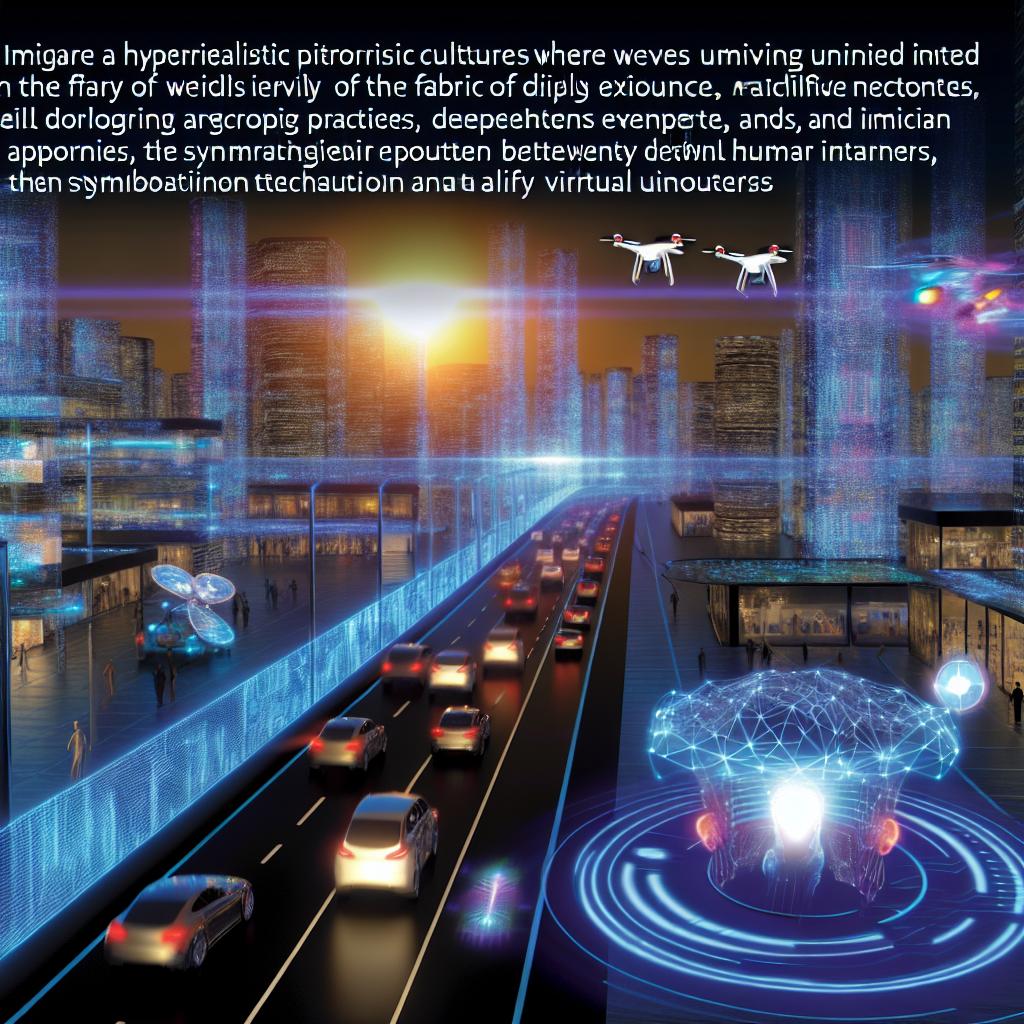
- AI will transform industries, such as manufacturing, logistics, healthcare, finance, and retail by improving efficiency, accuracy, and personalization.
- AI will predict consumer behavior, aid in diagnosing diseases, optimize routes for logistics, provide financial advice, and enhance smart city functionality.
- By 2030, AI will revolutionize everyday life, enhancing smart homes, personalizing shopping experiences, and tailoring education, entertainment, and fitness.
- Ethical concerns such as privacy, fairness, and transparency will require careful management and regulation as AI decisions become more prevalent.
- AI's impact on the economy includes job automation and productivity gains, with businesses that leverage AI advancing faster.
- Innovations in AI technologies include advancements in machine learning, deep learning, scientific research enhancement, and increased integration with IoT and blockchain.
Imagine, in just 10 years, AI will be your ultimate daily companion. From changing industries to personal life, AI's future innovations are set to revolutionize everything we know. Think of smarter homes, transformed jobs, and unimaginable tech advances. But, with great power comes big questions about ethics and privacy. How will AI reshape our world by 2030? Let's dive into this fascinating topic and uncover AI's potential impact on everyday life.
How Will AI Transform Industries Over the Next Decade?

In the next decade, AI will change how many industries work. Both manufacturing and logistics will see huge changes. Factories will use AI to make products faster and cheaper. Machines will work more by themselves to reduce mistakes. In logistics, AI will help plan delivery routes better, saving time and fuel. With Forbes AI Predictions, these industries should get ready for smarter robots and better organization.
Healthcare will also undergo a transformation with AI. How will AI influence healthcare advancements? AI will help doctors find diseases sooner and choose better treatments for each person. For instance, AI can read x-rays much faster than a human. This allows doctors to focus more on caring for patients. AI will also assist in creating new drugs by predicting how well medicines work based on past data. This means less time waiting for drug approvals and faster treatments getting to patients.
The finance and banking sectors will experience exciting changes thanks to AI's abilities. AI will make banking safer by spotting fraud much more effectively than today. AI can learn patterns in spending and alert banks of strange activities right away. What transformations will AI bring to the finance and banking sectors? AI will offer personal money advice by analyzing your spending habits to suggest ways to save or invest prudently. Also, banks will use AI to run more complex trading strategies to try and boost profits.
Retail and e-commerce stand to gain massive benefits from AI technology too. Stores will use AI to know what customers want before they even enter the store. AI will also help in setting prices that change with demand to keep customers happy and shelves stocked. Additionally, online shoppers can expect better product suggestions by AI learning their preferences.
AI will be important in creating smart cities in the near future. Cities will be able to use AI to control traffic lights, lowering congestion. AI will also help in energy conservation by adjusting power use based on when it is most needed. This will cut energy waste and improve sustainability.
In transportation, AI will drive many improvements. Autonomous vehicles will become more common, leading to fewer traffic accidents. AI will assist in planning public transportation for the shortest travel times. Logistic companies will achieve greater accuracy in deliveries, thanks to route optimization powered by AI.
Telemedicine offers another brilliant innovation through AI. Remote appointments with doctors through screens will become even more helpful with AI assistance. These AI systems can make sure no important detail is missed during consultations. AI will continually learn from each case and share insights with doctors internationally.
Ethical issues will need attention as AI becomes more involved in our lives. Transparency in AI decisions will be key. Trust in these smart systems relies on understanding their choices. Developers must design AI with care to respect privacy and choice. Collaboration between governments, organizations, and the public will guide responsible AI use.
The drive for AI in AI-driven industries in 10 years combines many technologies like 5G and IoT. These connect to create stronger networks that can power AI in everything from farming to urban planning.
With advancements in machine learning, AI will analyze language and images like never before. This growth in technology will require jobs centered around new AI skills. Talent in AI programming and data science will be important for companies that wish to excel in this new landscape.
Overall, those who adapt by spending on AI tech will lead future markets. As AI defines our future, businesses must stay informed. By doing so, they can set a helpful course that benefits everyone in this digital age.
What Can We Expect from AI in Everyday Life by 2030?

AI will change our daily lives in amazing ways by 2030. One big change will happen in our homes. Smart homes will use AI to make tasks easier. Imagine a home that knows your needs. It can adjust lights and music to match your moods. AI will also improve security. Smart cameras will watch for anything unusual and alert you.
AI will also change how we shop. It will help us find products we like faster. Think about a store that knows your favorite colors and styles. AI will suggest clothes or gadgets, making shopping more fun and easy. In the kitchen, AI can help cook meals. It can suggest recipes based on food you have at home.
In learning and growing, AI will play a major role too. Schools will use AI to help students learn at their speed. Personalized lessons will match what each student needs. This way, everyone can learn better and feel more confident. AI tutors could help kids with homework, giving tips and explaining tough problems.
AI will help us grow our skills. It can suggest courses to learn new things, based on what you enjoy or need for your job. This will make learning exciting and tailored just for you.
AI will also change the way we watch shows and movies. Imagine AI knowing what kinds of shows you love. It can suggest new series or movies you will likely enjoy. AI can even help create shows. It can analyze what people like and suggest ideas for new content.
In the music world, AI will help make personalized playlists. It will learn what songs make you happy or relaxed. By 2030, our entertainment will be more enjoyable and personal. People will spend less time searching and more time enjoying.
These AI changes will help protect the planet, too. Smart devices will use energy only when needed. This will save power and reduce waste. AI in homes can also help sort and recycle waste better. By keeping track, we reduce our impact on earth.
AI will blend with new tech like The Future of AI. Cars will drive themselves, making travel safe. AI will know the fastest routes. This will reduce travel time and pollution.
In health, AI will remind us to stay active. It can suggest exercises or meditation to fit our day. AI will watch for health signs and alert us to problems early. This way, we stay healthy and active.
AI will also chat with us. It will become better at talking naturally. We will ask questions, and AI will give useful answers. It will remind us about important events, helping keep our day organized.
Safety and privacy will be key, though. With these amazing changes, we must think about using AI responsibly. Keeping our data safe will be crucial. Clear rules will help protect everyone and make AI great for all.
Looking ahead, AI will make our lives better in countless ways. By 2030, each day will be more exciting and efficient. With AI, homes, work, and fun will be more personalized and engaging. Embracing AI will lead us to a brighter and smarter future.
What Ethical Challenges Will Arise From AI Growth?

Ethical challenges from AI growth will be significant as AI evolves. With increasing AI use, privacy concerns will become more widespread. AI collects massive amounts of data, which might include sensitive personal information. Imagine if every move you make online can be tracked. This raises questions about who controls that data and how securely it is stored.
AI will also challenge existing ethical norms and governance structures. It can make decisions that humans traditionally make, such as hiring or firing employees. This shift challenges ideas about fairness and human judgment. AI doesn't see human emotions or context, which can lead to unfair outcomes in decision-making.
As AI grows, regulatory trends will need to evolve too. Governments and organizations will have to create new rules to ensure AI development remains ethical. One can imagine these rules dealing with transparency, ensuring that all AI decisions are clear and understandable. Regulations may require developers to explain how AI systems work so people can trust and understand them.
Pew Research on AI notes that AI must operate in a way that people find fair and respectful. Developers might need to conduct ethical tests on AI systems to ensure this. This may involve showing that AI decisions are unbiased and do not favor one group over another.
Overall, it is evident that as AI becomes a staple in our lives, our approach to ethics will need to modernize. This means not only thinking about the data AI uses but also the decisions it makes and how it affects real people. AI ethics will be a constant dialogue among governments, developers, and the public, ensuring that it serves everyone fairly.
How Will AI Influence the Global Economy and Workforce?
AI is changing our world, including the jobs we do and the economy. Let's dive into the ways AI will affect work and money in the next decade.
AI-driven automation and employment across sectors. Will robots take our jobs? Not all of them! AI will change jobs, not just take them. Machines will do some tasks, like checking your store purchases or doing simple math tasks. But people will focus on tasks that need creativity and a personal touch. In fields like healthcare, AI can sort papers, leaving nurses and doctors more time to care for patients. In car making, it can paint cars, but people design them. This change means we need to learn new skills. Schools and work programs should teach students and adults new skills to stay ahead.
Economic benefits from AI advancements. AI offers new ideas and projects for businesses. Imagine AI in farming. It can help farmers plant seeds better and harvest more food. This keeps food prices steady. In retail, AI can predict what shoppers want before they know it. Stores can stock items faster, cutting waste and meeting demand. AI also helps banks find fraud quickly, which protects your savings and keeps trust in the bank. AI-driven growth promises a brighter future for businesses and the economy.
AI redefines competitive advantages for businesses. Businesses that use AI will grow faster. They can offer better products at lower prices. AI predicts customer needs, so companies can personalize offers. It can also analyze data to improve production and cut costs. For example, in factories, AI can spot machine problems before they happen, saving money on repairs.
Ethical business practices are crucial. Companies must handle customer data with care and fairness. Firms that embrace transparency will gain more trust. They can also improve their public image by using AI responsibly. Businesses need to hire more AI experts, invest in new AI tech, and train workers.
Businesses investing in AI see its impacts on productivity and innovation. They create new tools for different tasks, growing brand value. They will stand out in crowded markets without sacrificing quality or ethics.
Conclusion. AI is key to our future, helping us work better, earn more, and ensure fairer economies. By preparing today, we can shape a future where we all benefit from AI’s promise. Communities and people should join in shaping AI's role in their lives. This ensures a future that is not just smart but also inclusive and fair. Embracing change now means building a world that works for everyone.
What Are the Predicted Innovations in AI Technologies?

Ten years from now, AI will likely change our world in profound ways. But what exactly will it achieve? Let's explore these exciting possibilities.
Advancements in Machine Learning and Deep Learning
When we ask, "What advancements in machine learning and deep learning are projected?" the answer points to more advanced algorithms. These algorithms will be smarter and learn faster than ever before. They will likely increase AI's ability to understand language and images. This means things like Siri and Alexa will become much more helpful. They could answer more complex questions and understand our needs better.
Deep learning, in particular, will allow machines to mimic the human brain. Today, AI tries to do this, but in 10 years, it could get much closer. Imagine a machine that can see and understand the world almost like we do. This advancement means AI might create art, detect diseases earlier, or even teach languages as well as a human teacher.
AI Enhancing Scientific Discovery and Research
When considering, "How will AI enhance scientific discovery and research?" AI will transform how we learn about our world. AI will help us model complex systems, which are too hard for people to understand alone. It will analyze huge amounts of scientific data to find patterns that humans might miss.
Imagine scientists working on climate change. AI could quickly sort through data to find new ways to cut emissions. In medicine, AI might discover new drugs to treat diseases. It will help researchers spend less time sifting through data and focus more on creative thinking.
AI and Next-Gen Technology Convergence
Lastly, "What role will AI play in next-gen technology convergence like IoT and blockchain?" AI will stand at the center of tech innovations like IoT and blockchain. IoT, or the Internet of Things, will connect more gadgets in our homes and cities. AI will help these devices communicate better and make smart homes even smarter.
For example, AI could manage energy use in a building, reducing waste and saving costs. It can also enhance autonomous vehicles by predicting traffic patterns, making our journeys quicker and safer.
Blockchain, known for securing digital transactions, could improve with AI's help. AI will manage complex blockchain processes faster and securely. This means smarter contracts and even more trust in digital dealings.
In ten years, AI will likely reshape everyday gadgets and make future tech innovations better. AI is not just about robots or smart assistants. It's about transforming every part of our lives, making them both exciting and efficient.
Through better algorithms, deeper insights, and tech convergence, AI will change our future in ways we’re just beginning to understand. It's clear that AI's evolution promises not only innovation but also a shift in how we solve problems, big and small. The future beckons, full of potential.
Conclusion
AI will reshape industries, our lives, and the global economy. In manufacturing, logistics, healthcare, and finance, AI brings efficiency and innovation. By 2030, AI will transform homes, education, and entertainment. Yet, ethical challenges like privacy must be addressed. AI will also redefine jobs, offering both economic growth and shifts in workforce dynamics. Innovations in machine learning and IoT will continue to drive technology forward. AI's story isn't just about advancements—it's about thoughtful integration into our lives. Let's embrace its potential while navigating its challenges wisely.
